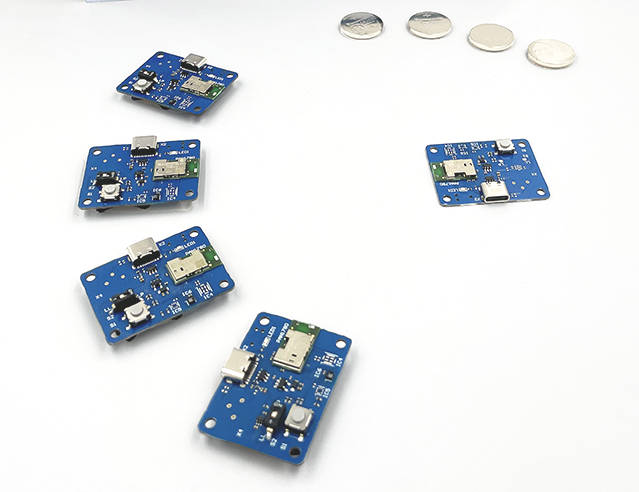
When the text flashed on my iPhone screen, I had the answer to the question I’d been afraid to ask. His reply didn’t surprise me, I had known it deep down inside but needed to hear it from him.
The person I had feelings for had just told me over text they didn’t want to pursue anything romantically with me. Tears rolled down my face as I cried silently. It felt terrible.
But the worst part of this rejection was that the first thought that popped into my head was: I need to change. My thoughts were not ‘I deserve better’ or ‘he’s clearly an idiot’ or ‘onwards and upwards’ but instead ‘I’m not good enough’. I translated his romantic rejection as commentary on my worth, the message felt clear and resounding: it’s you, not him. Nothing could convince me otherwise.
With the benefit of hindsight, I know this is all wrong. But at the time, I was certain of my own supposed shortcomings. I wasn’t pretty enough, wasn’t thin enough, I needed to lose weight, change my hair, change my personality, be less ‘me’. I acted on some of those misguided beliefs in a bid to shape myself into a version of myself that I deemed more ‘dateable’.
How to move on after a situationship ends
There was nothing anyone could say that would change my mind and I didn’t know how to pull myself out of the pit of self-loathing that this rejection had pushed me into. Time, as we know, is a great healer and eventually I reclaimed my self-worth. But, the experience served as a lesson. It was clear that romantic rejection brought up some of the very worst things I think about myself and made old wounds sting as if they were new.
The entire ordeal made me question whether my sense of self-worth is tethered to how ‘desirable’ other people find me. How can I ensure I don’t sink into the abyss the next time someone ends things? How can I begin to see that it really isn’t me, it’s actually them?
Want more sex and dating stories in your inbox? Sign up for Mashable’s new weekly After Dark newsletter.
So, how do you separate romantic rejection from your self-worth?
Relationship expert Rachael Lloyd from eharmony says romantic rejection is one of the most painful types of rejection. “It literally cuts to the very heart of who we are and how attractive we deem ourselves to be,” says Lloyd. “And no one is exempt. A recent report by eharmony and Relate found over 60 percent of men fear rejection, particularly in terms of their age and appearance. This echoes what women tell us.”
Low self-esteem and past trauma can prolong the agony of a romantic rejection. “Thankfully, most people can weather their way through the painful feelings by leaning on good friends or family. But those of us who already have low self-esteem and carry hidden reserves of childhood trauma can find ourselves derailed for months, in some cases years,” adds Lloyd.
How to work on your self-esteem with these helpful tips
So, how do we make it less painful for ourselves? As Sam Owen, Hinge UK relationship expert, tells me, “Dating, like life in general, is about looking for the people you click with.” Let’s face it, we don’t get on with everyone we meet — otherwise we’d be best friends with everyone we’ve ever encountered. Owen says that the process of dating allows us to learn about who we are, what we want, as well as enabling you to build resilience by interacting with people who are and are not right for us. “So when someone ‘rejects’ you, not only is that saving you precious time, but it’s also the universe ushering you towards potential mates who are worthy of you, your time and your love,” says Owen. “Thus, rejection is rewarding: it both teaches us something and it nudges us towards our goals and happiness.”
You’re not being rejected, the relationship is
Lloyd says that rejection is never attached to one person. “If our partner ends the relationship, it’s because something in the relationship wasn’t working for them, rather than something purely in us,” she says. “It can be really empowering to separate our sense of self, from the combined self we become when we bond with other people.”
So, when someone breaks up with you or says no to taking the relationship further, it’s not necessarily you as a person that’s being turned down, it’s the relationship that’s being rejected. “We also need to realise that rejection is never entirely personal, it’s often reflective of key needs or wants that aren’t being met within a mutual dynamic.”
Remember this is about them, not you
“Dita Von Teese once said, ‘You can be the ripest, juiciest peach in the world, and there’s still going to be somebody who hates peaches.’ And she was right,” says Ruby Payne, in-house sex and relationship expert at sex toy retailer UberKinky. “When someone we want doesn’t want us back, we immediately start to question ourselves: Why am I not good enough? What did I do wrong? Am I ugly? We start to become defined by the fact that another person has rejected us, and we deem ourselves unworthy of future love,” says Payne.
“Dita Von Teese once said, ‘You can be the ripest, juiciest peach in the world, and there’s still going to be somebody who hates peaches.’ And she was right.”
“The simple fact is that the rejection was less about you, and more about them, with absolutely no reflection on your worth as a human being,” Payne adds. “It doesn’t mean that you aren’t attractive, fun, or a good person to be with – it simply means that they weren’t the right person for you.”
Payne says it’s absolutely fine (and healthy) to be down after a rejection or breakup. “Take time to heal and lick your wounds, but once you learn that the break-up wasn’t about you, the quicker you’ll get back on your feet,” she adds.
Turn rejection into reflection
Qualified life coach Puja McClymont says that if you do feel your self-worth has been compromised, it can be helpful to reflect on any lessons that you can draw from the experience.
“Rather than focus on what might be wrong with you (there’s nothing wrong with you but this is where we tend to go) focus on what you can learn from the person or experience,” says McClymont. “Are there any red flags that you missed? By reflecting in this way, you’re looking to improve your experiences rather than put it on yourself as a failure.”
What to do when body image is affecting your sex life
“The ultimate key to not feel like you’re being rejected is to actually work on your self-worth. Who are you? What do you stand for? Do you live your life aligned to your values? Do you believe in yourself? What do you need to do to build more self-esteem so that your worth is never in question?” McClymont continues. “Some deep reflective work can be a real game-changer when looking for love. Building you up each time rather than bringing you down each time will help you bounce back from a relationship that didn’t work out in a much healthier way.”
Turn it into a positive
As Hinge’s Sam Owen points out, it’s important to remember that rejection also helps you avoid wasting time in the wrong relationships. “Even though 26 percent of Hinge daters feel worried about hurting the other person’s feelings when they want to end an undefined romantic relationship, a huge 85 percent said they would rather know if the other person isn’t interested in them. This highlights how ‘rejection’ is not about a person’s worth, it’s simply how each individual seeks a mutually exhilarating connection. And that’s what romantic love is all about,” says Owen.
Rejection is part of the process that leads us towards what we’re looking for. “So, in reality, romantic rejections are road signs and redirections all set up to help you achieve your relationship goals, not a reflection of your worth,” says Owen. “Your job is to work on being happy and healthy within yourself. If you’re feeling deflated from rejection, consider prioritising working on your mental health. Taking this time for self-care will lead to more resilience, energy, and mental clarity for your all-important dating and relationship goals moving forward. Then, you can focus on finding someone that truly deserves you.”
If I could turn back the clock and tell myself that absolutely nothing about me needed fixing or changing, I would. Rejection really stings and, depending on how we’re feeling about ourselves in that moment in time, that pain can linger a little. Take as long as you need to nurse your hurt but remember the rejection isn’t about you — it really is about them. Someone out there will love you just as you are.
This article was first published in 2021 and republished in 2023.






